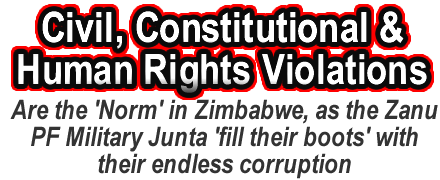 Source: Chido Shamu
Source: Chido Shamu
The cholera crisis in Harare, Zimbabwe, has escalated to alarming levels, posing a severe threat to public health. The Ministry of Health and Child Care’s latest statistics reveal a disturbing trend, with cumulative suspected cholera cases soaring to 1,744 as of November 26th, a significant jump from the 1,259 cases reported just a week earlier. This rapid increase signals a growing public health emergency in Harare, demanding immediate and effective response.
Harare at the Epicenter
Harare, Zimbabwe’s capital, stands at the center of this crisis, with a staggering 705 cumulative cases. The situation has reached a critical point, necessitating urgent measures to curb the spread of this deadly disease. However, the impact of cholera extends beyond Harare, with areas like Chitungwiza also facing the brunt of the outbreak, recording 163 cases in just a week. This widespread nature of the crisis underscores its severity and the need for a comprehensive approach to combat it.
Sewerage Nightmare Exacerbates the Situation
A key factor contributing to the outbreak is the deplorable state of sanitation in several residential areas {see Zexit Article 10th October and Updated 17th Novemeber 2023}. Investigations by The NewsHawks reveal a grim picture in locales such as Kuwadzana 1 and 4 and Chitungwiza, where unattended sewer bursts are a common and hazardous occurrence. Moreover, the Harare Residents Trust (HRT) has raised concerns over the conduct of council workers, who reportedly demand extra fees from households for addressing these sewer bursts, adding to the residents’ woes. This neglect leads to the contamination of water sources, directly contributing to the surge in cholera cases.
The HRT urges the City of Harare to prioritize the replacement of old and faulty water and sewerage systems, especially in the hardest-hit areas. This measure is vital to improve water availability and reduce the incidence of sewerage issues. Currently, the city loses about 60% of its treated water due to leakages in the distribution network, a situation that exacerbates the water scarcity crisis.
Water Scarcity: A Catalyst for the Outbreak
The cholera outbreak is not only a consequence of poor sanitation but is also fueled by a critical shortage of clean water. This situation is prevalent in both urban and rural settings. The Community Working Group on Health (CWGH) highlights the vital role of water scarcity in the resurgence of cholera. Many communities, including Harare, have been suffering from inadequate water supply for prolonged periods, making them vulnerable to water-borne diseases like cholera. Itai Rusike, the executive director of CWGH, notes that since the devastating cholera outbreak of 2008-2009, the sanitary and living conditions in Harare have deteriorated, with unreliable and often unsafe water supplies becoming the norm.
Rusike calls for a prompt and comprehensive response from the public health sector and the Ministry of Health and Child Care. He emphasizes the need for not just an emergency response to cholera but also long-term public health measures to revive the faltering health system, particularly primary healthcare services.
A Call for Immediate Action
The cholera crisis in Harare represents a rapidly unfolding public health disaster that requires immediate and concerted action. The combination of rising cholera cases, inadequate sanitation, and water scarcity creates a perilous situation, potentially leading to a full-blown epidemic. The government, local authorities, and stakeholders must collaborate urgently to tackle these critical issues. The situation demands rapid intervention to prevent further loss of life and to ensure the well-being of the Zimbabwean population, especially the residents of Harare. Prompt action is not just necessary; it is a moral imperative for the safeguarding of human lives.
